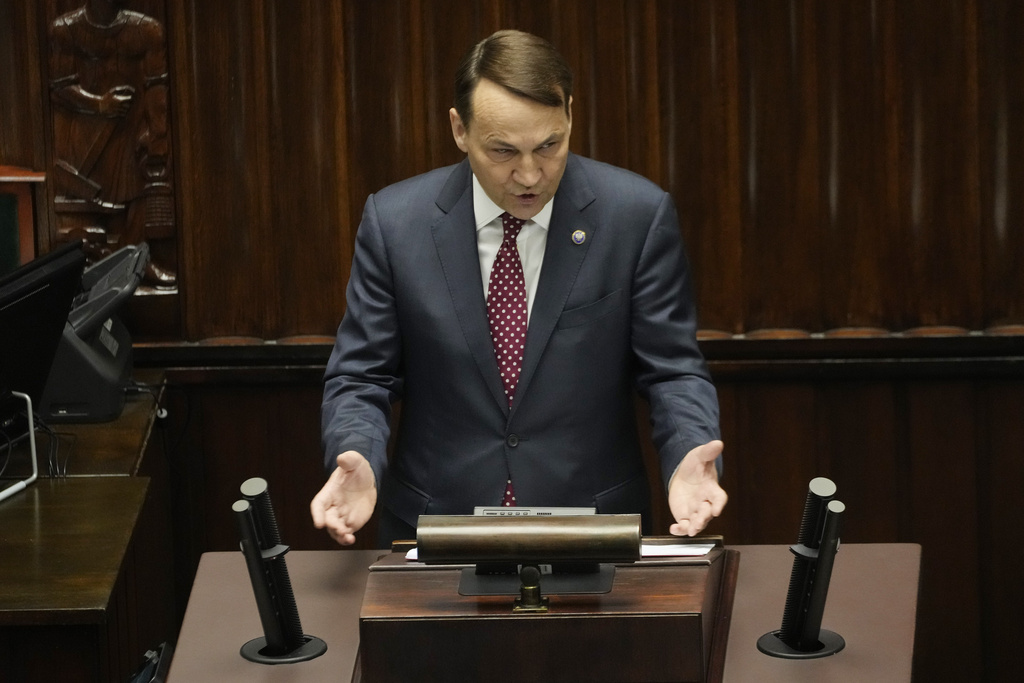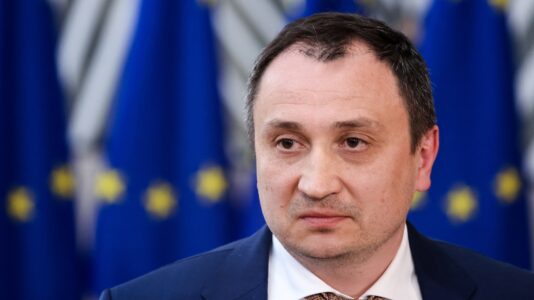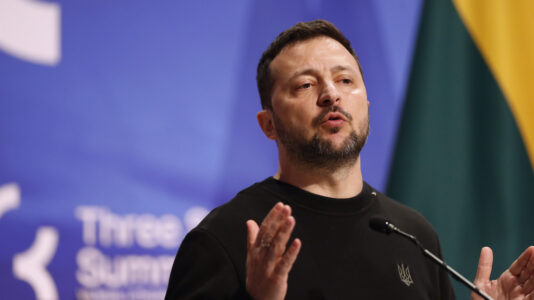Conservative Law and Justice (PiS) MEPs, Patryk Jaki and Witold Waszczykowski, have reacted negatively to the foreign policy speech in the Polish parliament made by Foreign Minister Radosław Sikorski, in which the top diplomat said Poland may have to accept treaty changes that limit the member states’ power of veto.
Sikorski took center stage in the Polish parliament on Thursday with a lengthy exposé of the Tusk government’s foreign policy. He covered Polish relations with the EU, Germany, and the country’s stance on the conflict in Ukraine.
The minister said that Poland may have to agree to changes in EU treaties leading to limiting the member states’ power of veto in order to ensure that the enlargement of the community to include Ukraine goes ahead, and to ensure that the EU’s decision-making becomes more effective so that “the EU becomes a superpower.”
Commenting on the minister’s remarks, MEP Patryk Jaki warned that signing a new treaty limiting its membership rights in the EU, “would be a tragedy for Poland.” He reminded that Prime Minister Donald Tusk had recently been opposing such treaty changes but that these words have turned out to be “empty.”
Jaki also said that in the last two years, he had been warning that the EU and Germany had illegally blocked EU funding for Poland because they had a deal with Tusk about a new treaty that would transfer more power to the EU.
The proposals for a new treaty foresee member states giving up powers in 65 areas of competence including foreign policy. Jaki doubts that France or Germany would be willing to protect Poland’s interests against those of Russia, should Paris and Berlin seize control of EU foreign policy. He also fears that such changes could lead to standardization of tax rates, meaning that Poland and other countries would have to raise their rates to be at the equivalent levels to those in Germany and France.
Former foreign minister in the PiS government, MEP Witold Waszczykowski, criticized Sikorski for failing to acknowledge that the conflict between Warsaw and Brussels during the lifetime of the last PiS government was initiated by Brussels, which encroached on Poland’s rights to organize its judiciary.
He also slammed Sikorski for failing to notice that Poland’s energy security is the result of its alliance with the USA and the creation of the Baltic Pipe connection with Norway, meaning Poland is not dependent on Russian gas.
However, the biggest danger he saw in Sikorski’s speech was the foreign minister’s “naive trust that the EU headed by Brussels, Berlin, and Paris is a club of altruists.” According to Waszczykowski, Sikorski fails to see the pursuit of German national interests and an attempt to convince Poles that becoming dependent on German European policy would be in the Polish interest.
In reality, argues Waszczykowski, Poland would have lost on energy policy had it gone with Germany, and today it is losing on climate policy because that policy is dominated by economics and an ideology that both lead to higher costs and loss of competitiveness for all of Europe.
Like Jaki, Waszczykowski is convinced that the proposed treaty changes will lead to a change in the way the EU functions to Poland’s detriment, with its interests being overridden.






